In-House vs. Outsourced Payroll: Which Is Right For You?
October 20, 2011
Payroll is the bedrock of the staffing industry. Nothing rivals it in importance and mistakes are rarely tolerated. A payroll system that is efficient and effective is an absolute requirement for a staffing business to thrive. As a result, many staffing company owners question their ability to shoulder this responsibility and are quick to look for alternative solutions.
As ABD’s VP of Sales, my perspective is that most staffing company owners have sales backgrounds. They’re aware of the role that payroll plays in their company’s processes, but don’t know the actual mechanics of getting it done. This, in turn, leads to one of the first major decisions that every staffing company owner must face: Do payroll in-house or pay for a service to do it for them.
There are pro’s and con’s, of course, for either path. However, there are also a number of misconceptions about the decision. Many people equate the decision about processing payroll with saving money on staff labor and the two simply don’t have anything to do with each other. It’s a common belief that outsourcing payroll removes the requirement of having a payroll person on staff. This is not the case.
You will still have to have a person (or persons) processing timecards, liaising with employees about their checks, dealing with payroll deduction orders, etc. As we zoom in on the process, we discover that there are really three major elements to doing temp payroll: Time collection, producing payroll checks and payroll tax reporting and filing. Payroll service providers can help with only the last two.
Another common misconception is that detailed payroll expertise is required to make this happen but again, it’s not necessarily the case. While some knowledge of how payroll works is useful, the primary burden of knowing how to produce payroll checks and tax filing reports actually falls on the automated system. The operators are really only required to learn how to use the system. The system will accomplish the process. Accountants usually help with the initial set-up and need to look payroll information over in either case.
To run payroll in-house, a company will need some type of payroll system. Ideally, this is an automated system and integrated with the rest of the staffing automation system. ABD’s Ultra-Staff is a prime example, as data generated from the staffing operation flows through to back office and becomes invoices and checks. You will also need personnel to operate the system starting with time entry and going all the way through to producing W-2’s at the end of the year. The accountant will confirm figures at a minimum on the quarter and annually.
To run payroll through a payroll provider a company will need a method to feed this data to that provider and personnel to assemble this data. Many solutions, such as our payroll staffing software, have such a payroll service interface. The company will pay a subscription service fee to the outside payroll provider for the service. Typically, producing checks and producing quarterly/year end reports/forms (W-2’s, Quarterlies) are billed separately in addition to the subscription fee by the payroll service provider.
The case that payroll service providers make is simple: “Give us the data and we’ll relieve you of much of the responsibility and liability of producing and filing payroll.” ROI statements for a payroll service include: “with labor saved by shifting the workload off of your people and onto us” or “reduced penalties for late or incorrect report filing”. These are strong arguments against a manual payroll process but when comparing an automated process – particularly if that process is part of an integrated information management system – there are some benefits to consider that are a byproduct of running it in-house.
There are, however, a couple of very compelling reasons to use a payroll service. If you’re doing payroll in multiple states the individual state filing requirements can be difficult to administer, and the penalties can be severe if it’s not done correctly or on time. Also, if benefits, insurance, funding or other products are bundled into payroll production it may be easier to let the provider of those products handle the production of checks as well.
Hugh Albert is the VP of Sales for Automated Business Designs Inc., software developer of Ultra-Staff software for the staffing and direct hire industry. Ultra-Staff is a staffing software business solution with components for front office, back office and the web. Hugh’s email address is hugh.albert@abd.net or for more information on Ultra-Staff go to www.abd.net

